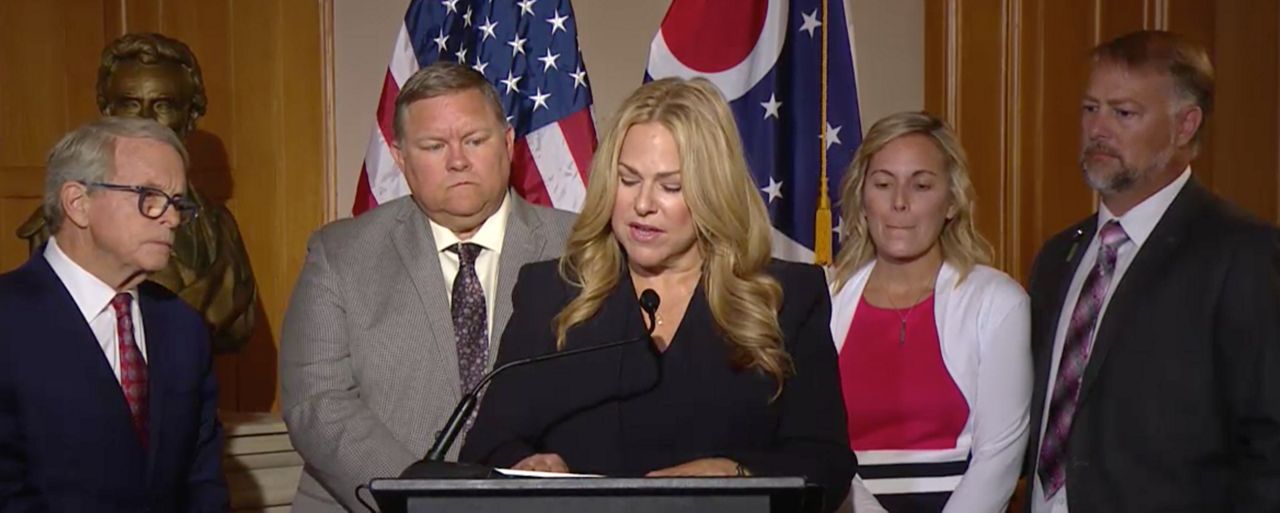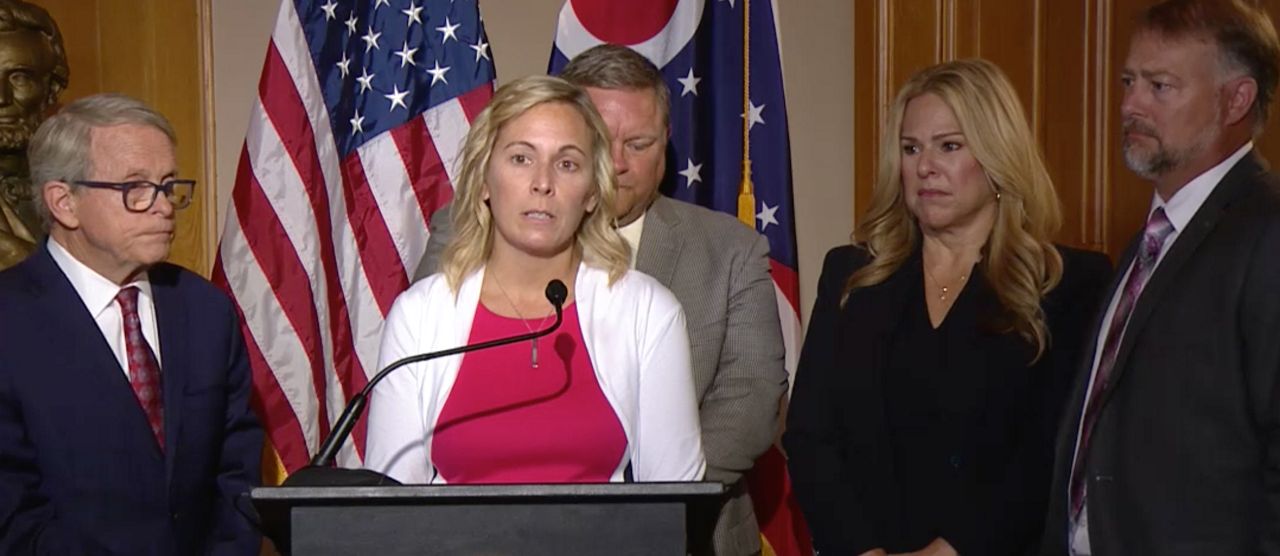OHIO — Gov. Mike DeWine signed Ohio Anti-Hazing Act, commonly known as Collin's Law, Tuesday morning at the Statehouse surrounded by the families who started and supported the legislation.
The bill is named after Collin Wiant, a Ohio University student who died following a hazing incident in 2018.
Collin's Law will increase criminal penalties for hazing which includes forced consumption of drugs and alcohol. It widens the scope for who can be punished for participating in the act and will have all student organizations on college campuses report any student conduct violations they have had every six months.
Hazing will go from being a fourth-degree misdemeanor to a second-degree misdemeanor. It also widens the list of officials who are required to report it, and if they don't, they will be charged with a first-degree misdemeanor. School faculty and staff will also be required to participate in hazing awareness and prevention training.

“He wanted to join a fraternity at OU and be a part of a brotherhood. He didn’t know that would cost him his life," DeWine said before the signing.
The law will go into effect in 90 days, but DeWine said university presidents are already preparing for the fall semester.
"We simply in Ohio cannot tolerate hazing, and we are saying with this bill we will not tolerate hazing. This is really a question of culture and for decades, the culture of hazing has been accepted as something that is tolerated," DeWine said. "This law will say, 'We do not tolerate this in the state of Ohio.'"
Lawmakers attempted to pass the legislation in 2019. It passed the Ohio House in November 2020. It was then sent to the Senate Education Committee, but didn't make it past the General Assembly before the end of the term.
"We have made Ohio a leader in anti-hazing reform across the country," Kathleen Wiant, Collin's mom, said.
Wiant said days after Collin died, the family gathered together to write his obituary, trying to come up with words that would highlight his character.
“Collin always stood up for the underdog. Collin was a protector by nature. I could think of no way better way to honor him," Wiant said. "Collin, I know you’re watching, and I hope we make you proud.”
The renewed push for the bill came after the death of Stone Foltz, 20, a Bowling Green State University student who was found unconscious by his roommate in early March after attending an alleged hazing event at Pi Kappa Alpha fraternity.
"Do I want to be here? No," said Shari Foltz, Stone's mom. "Obviously I want my son back. It’s hard. It’s only been four months, but we will continue to fight. Collin’s Law is a step in the right direction, but we will continue to fight. Our fight is zero-tolerance."

A lawsuit filed by Foltz's family in May alleges his fraternity “big brother” was supposed to spend the night with him to make sure he was alright, the lawsuit said.
“Instead, Stone Foltz was taken from the car into his apartment and left alone on the couch to die,” the complaint said.
His roommate came home and found him facedown on a couch and still breathing, according to the lawsuit. His roommate then said Foltz stopped breathing, and his face and ears turned purple and blue.
According to the coroner, his blood alcohol content was roughly five times Ohio’s legal limit. Foltz drank the equivalent of 40 shots, the attorney said.
Bowling Green officials said they found that new members who attended the party were blindfolded and taken into a basement while being yelled at and pushed in an attempt to disorient them.
The national organization for Phi Kappa Alpha placed the Bowling Green chapter on probation from December 2019 to May 2020 after receiving information from university officials about hazing at the fraternity.
Seven men affiliated with the fraternity were criminally charged and pleaded not guilty.
"We can’t wait to get serious about this until we lose another child, until we lose another college student," DeWine said. "The nature of life is that we only sometimes get serious about things when there is a great, great tragedy. We’re going to get serious."



